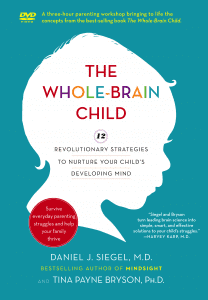What To Do If Your Child Has Worries About Going to Camp
Warming Your Child’s Cold Feet
Camps provide comprehensive checklists for all the gear our children need to pack, but it’s also helpful to compile a checklist for preparing them emotionally if they are experiencing some cold feet, dread, or worry.
An Emotion-Prep Checklist for Sleepaway Camp:
1. Name it to Tame it. It’s really unhelpful for parents to dismiss or minimize or ignore a child’s feelings and say, “You’ll be fine. You’ll love it! Don’t worry.” (Has someone telling you “Don’t worry” made you say “Oh, OK. I hadn’t thought of that. I’m not worried anymore.” Not helpful, right?) Instead, if you sense your child is feeling a bit unsure or fearful and she’s not bringing it up, you can begin the conversation by saying something like, “Some kids feel nervous about camp as it gets closer. How are you feeling about it?” And whether or not your child is initiating the discussion herself, it’s important to really listen and validate those feelings instead of trying to talk her out of them or dismiss them. There’s actually a lot of science that shows that naming our feelings calms the reactivity in the brain, so when we “name it” we can “tame it.”
2. Investigate and Problem-Solve. Find out what your child’s specific worries are, and then collaboratively problem-solve with her. Most kids worry about being homesick, but it might surprise you what they are actually concerned about. Kids worry that they won’t like the food, that they won’t be good at the activities, that they will wet the bed, and even that their shoes will get wet. Whatever the worries, it can be helpful to brainstorm together and talk about the “what ifs,” and what she can do in the circumstances she’s thinking about.
3. Normalize the Feelings. Just knowing that many other kids feel unsure or scared, too, and that it’s normal to feel worried about doing something that’s different, can help. Tell your own story about a time you stepped outside your comfort zone and how you felt apprehension at first, how you handled your feelings, and how the experience ended up being great. (Make sure to pick a resilient story—no stories about how it ended up being even worse than you could’ve imagined.)
4. Give Your Child a Strategy or two to help her calm her worries. One thing you can begin now that will give her a tool she can use while she’s at camp is something I use with anxious kids in my private practice. I give them an assignment that each night, once they are peaceful and relaxed and ready to fall asleep, they should place their hand on their chest (pledge-of-allegiance style). After doing this every night for a few weeks, the brain makes a connection between the sensation of the hand on the chest and a feeling of calm relaxation. Then, when the child is feeling worried or upset, she can easily place her hand on his chest wherever she is, and her body will begin to relax and her mind will begin to feel calm.
Another strategy is to teach her that while her feelings might feel really wild and stirred up, if she pauses to take a few deep breaths, the worries will settle, allowing her to see clearly again. The best thing I’ve found to teach this is the “glitter ball” analogy that Susan Kaiser-Greenland created. You can teach this to your kids by having them watch this super-short video with you. Then send a glitter ball, or a small snow globe, to camp with your child, explaining that she can shake it up and watch the glitter settle when she’s feeling upset. Or, you can just have her imagine the glitter falling and you don’t have to send the actual ball.
If you do these two things in the weeks before your child leaves for camp, you can build some skills and empower her with some tools she can pull out when she needs them. This allows her to avoid becoming a victim to her feelings, and to be able to use her mind to change how she feels. In fact, you might try some of these tools too, if you are feeling worried about sending your child off!
This moment is a great opportunity to teach kids that while we should pay attention to our feelings, our feelings shouldn’t rule our worlds. If you name, investigate, normalize, and strategize, you will be preparing your children to go to camp with the best chance of overcoming their fears and learning something really important about themselves—that they are braver and stronger than they think. You’ll be helping them flex their emotional muscles to be strong and resilient in the face of challenges. You’ll be doing much more than just prepping them for camp, you’ll be prepping them for life.
